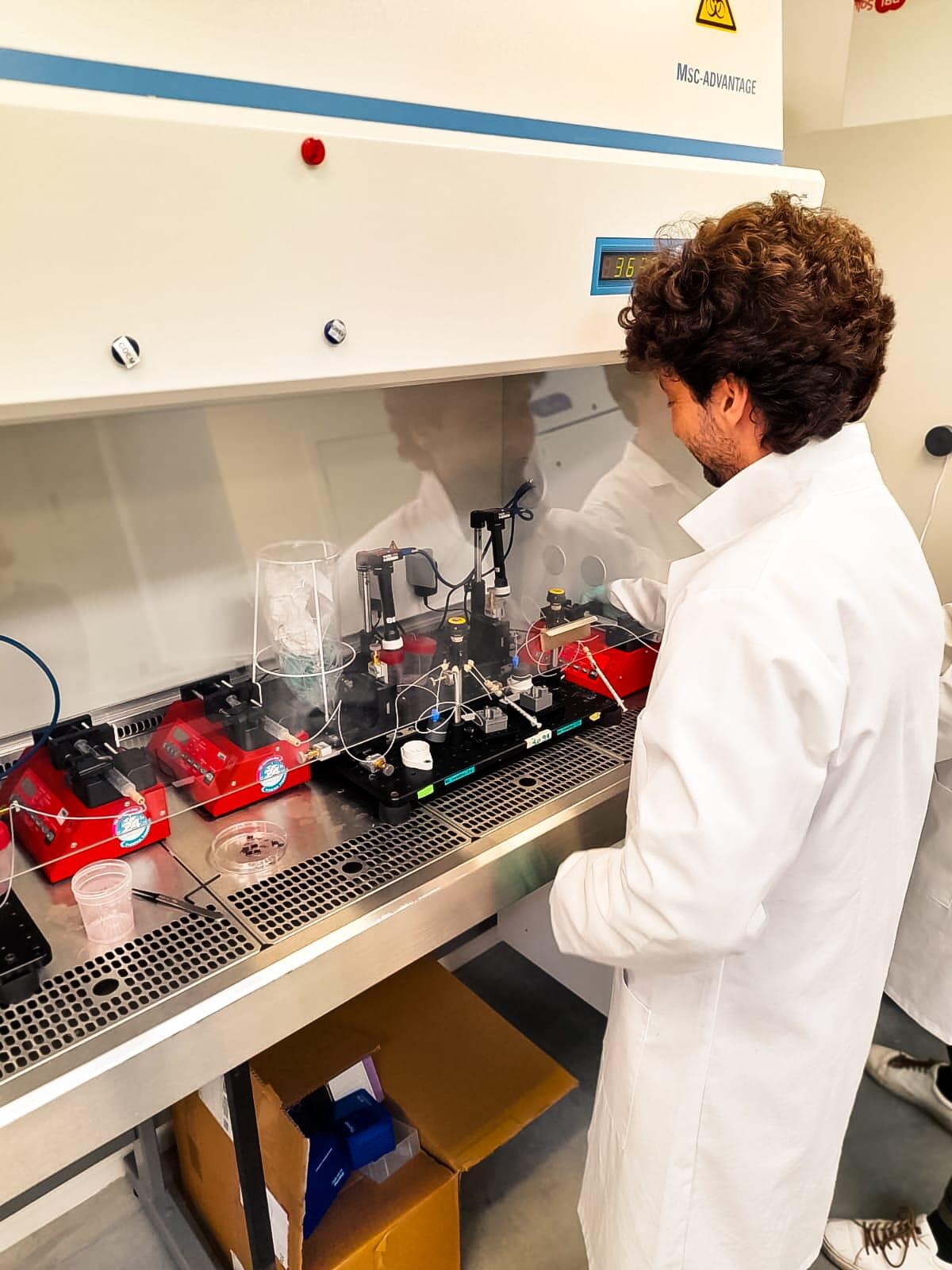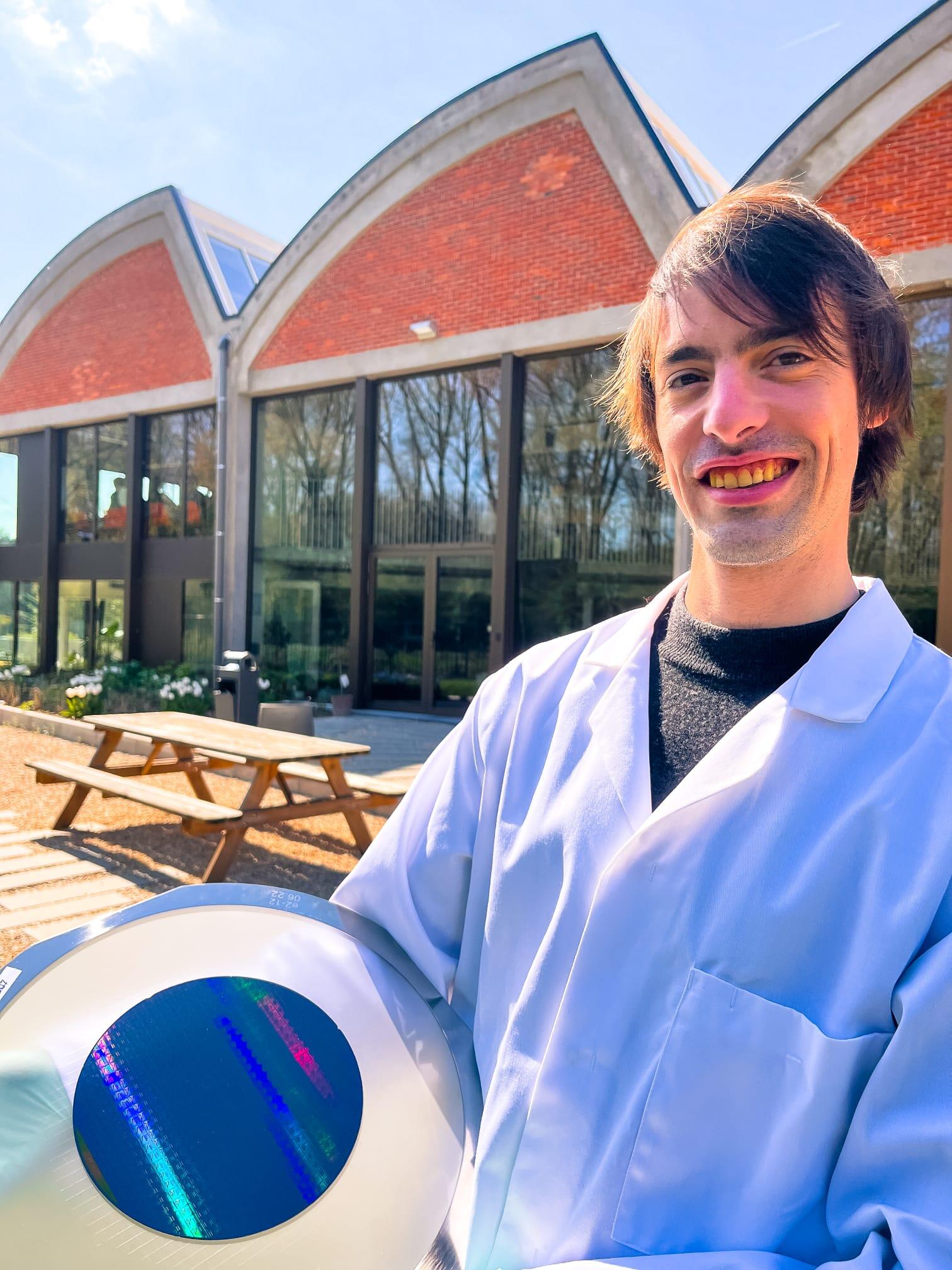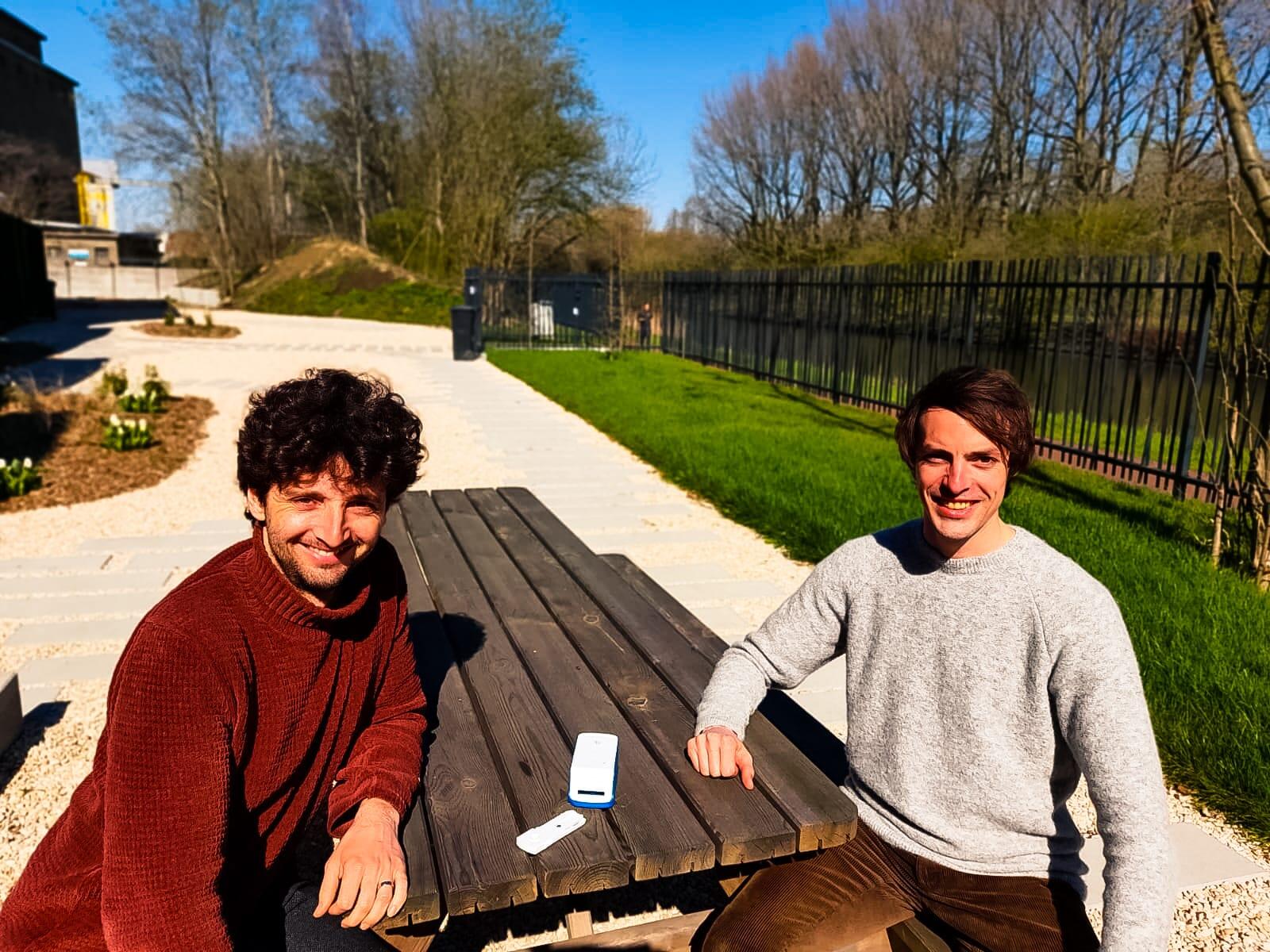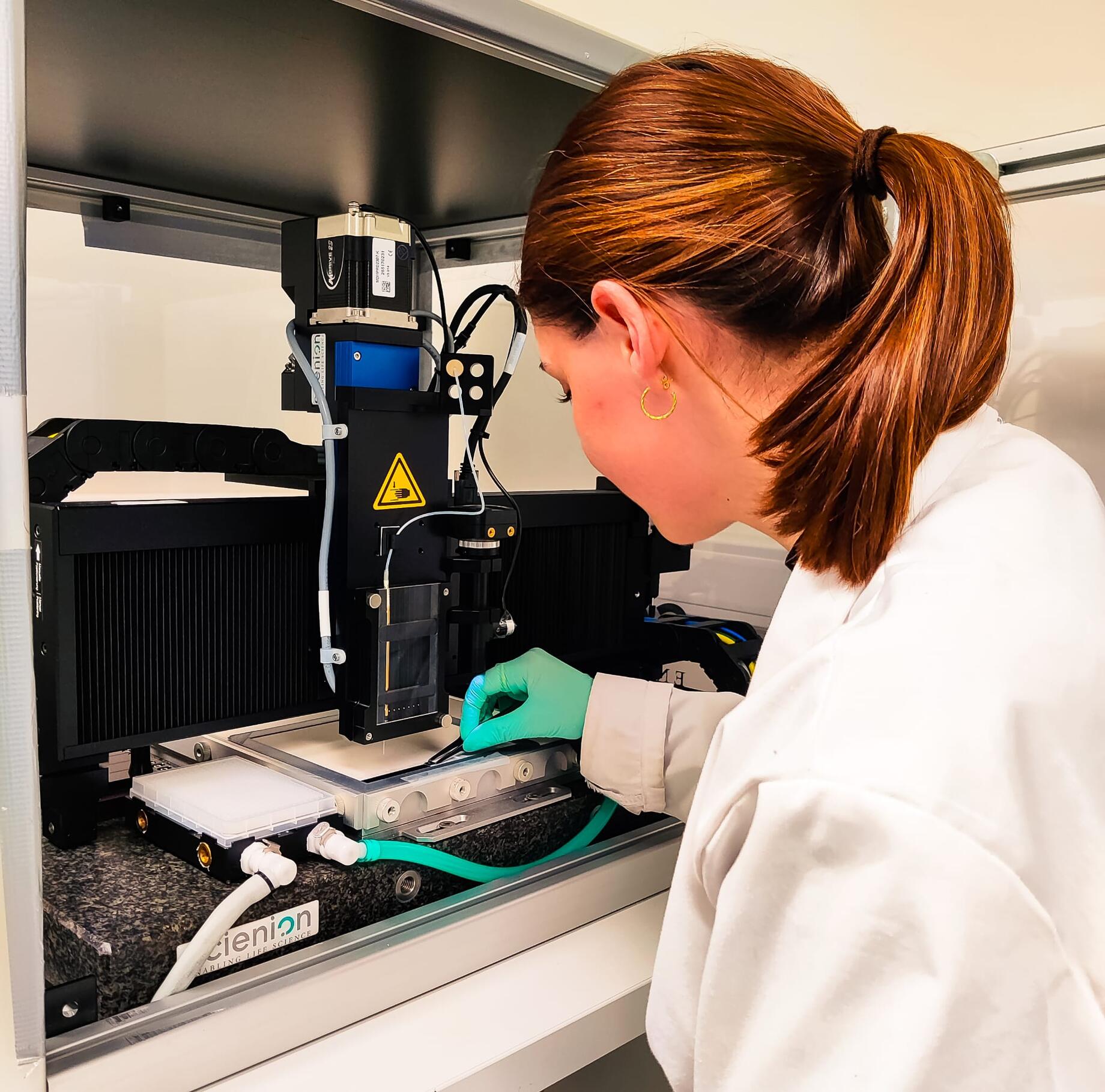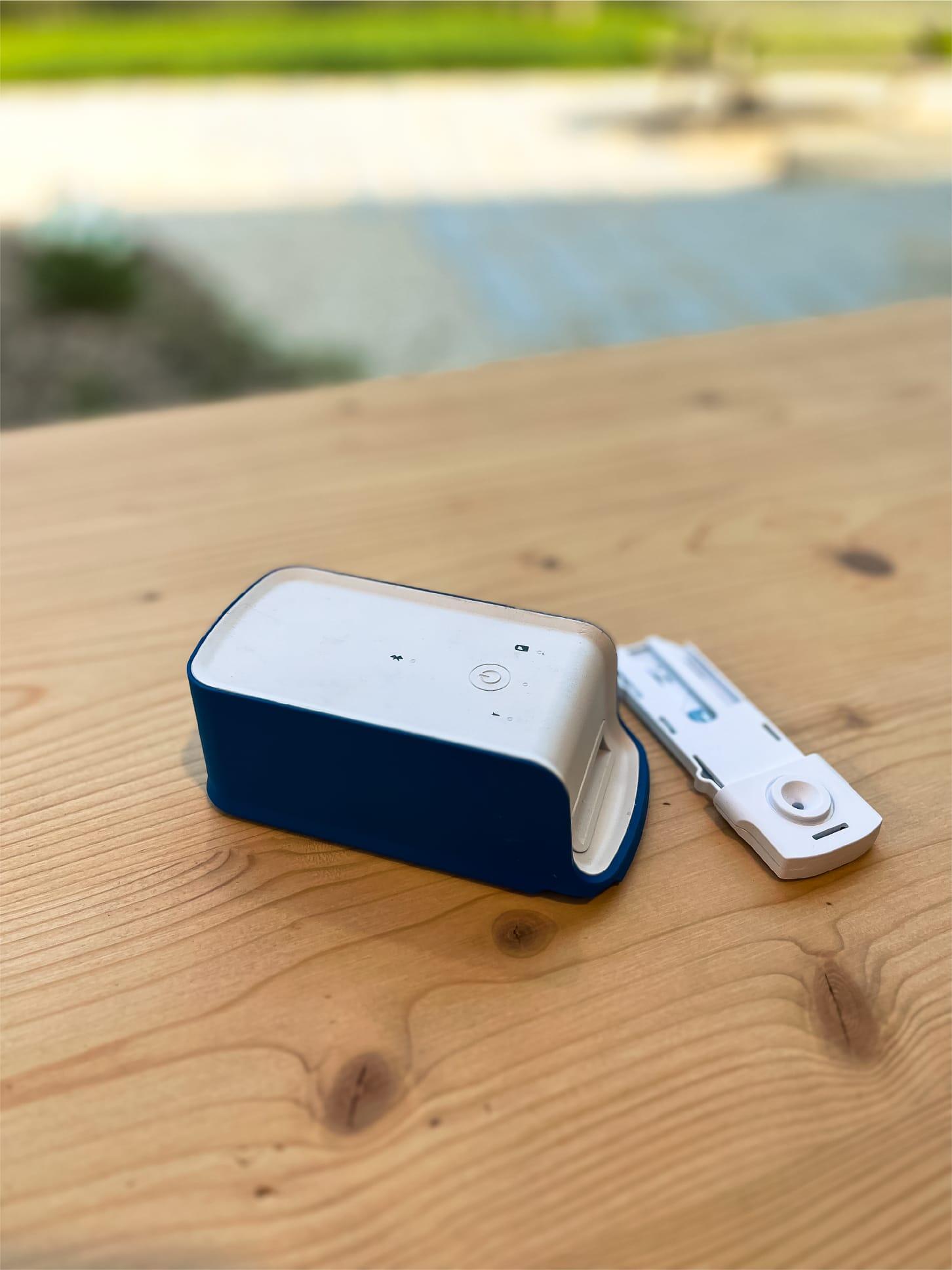Illuminating advances in rapid STD self-tests: how photonics is revolutionizing healthcare
Jan-Willem Hoste and Ruben Van Roosbroeck are developing self-tests for STDs like chlamydia and gonorrhoea with their company Meep.
Being the first within a certain expertise means setting the bar particularly high. Yes, we have to admit, it’s ground-breaking work, but convincing others of the added value of that particular product is not always easy. Sometimes, you can only reap the fruits of all that toil many years later. Those later years have now, hopefully, arrived for Meep. Jan-Willem Hoste and Ruben Van Roosbroeck bought the technology of Antelope DX and are now developing self-tests for STDs such as chlamydia and gonorrhoea. Because there is still a taboo surrounding this topic. The two founders hope that they can break that, so that more people will get tested and eventually treated, offering them the ability to test themselves, comfortably at home.
What they’re doing is at the intersection between what we call digitech and healthtech. We often talk about separate ecosystems, but actually, there are many clever synergies between the different fields. Those intersections make for a thriving technology sector. In the past, that intrinsic Ghent entrepreneurial spirit has made it an excellent place for startups and scale-ups to start and further develop a business here. And Jan-Willem and Ruben’s journey fits that framework like a glove. What follows is a story about those interesting links, building expertise, and a healthy dose of guts.
In the beginning, there was nothing
What Meep is offering, fits within the trend of digital health. People want to be able to monitor their own health digitally in a simple way. But the technology they’re using to do this is quite recent. Ruben first came into contact with photonics during his training within imec’s Biotech research group. “Immediately, I was fascinated by the simplicity and effectiveness of those photonic biosensors,” he says. And some 15 years ago, Jan-Willem opted for the master’s in Photonics within the Faculty of Engineering at Ghent University, then one of the newer directions. Now he’s seen as one of the pioneers of Ghent’s photonics industry. “People were very enthusiastic back then, because the department did pioneering research and you were able to go in all kinds of directions: from telecom to image processing and sensors. They made chips with optical circuits where photons were guided around in small wires. I thought it was pretty neat that you could also do hypersensitive sensing with that.”
Ghent is indeed a pioneer in photonics, with the university and several companies specialising in it. Indigo Diabetes, for example, is a company that develops medical applications for diabetics based on nano photonics, implanting chips just under the skin so that diabetics can monitor their values in a more efficient manner. In case of abnormal glucose levels, a signal is sent to the user via an app. In a similar way, Meep is making people’s lives easier.
-
We test for STDs and that's still a very delicate diagnosis. That’s why we want to give people the opportunity to test in the safety of their own home.
Breaking the taboo thanks to technology
“We test for STDs and that is still a very delicate diagnosis,” Jan-Willem admits. “That’s why we want to give people the opportunity to test in the safety of their own home. We focus our product mainly on women, as 1 in 20 young and sexually active women have Chlamydia. Some know it, but others don’t get tested because they’re afraid to go to the doctor. But, of course, that’s a vicious cycle: they don’t get tested and can infect others, who infect others in their turn.”
The light chips themselves are made at imec and are delivered in ‘wafers’. These are thin slices of silicon, as seen above, consisting of hundreds of light chips. “We then ensure that a bio-coating is applied”, says Ruben. “We apply biological receptor molecules to the chip, which can then capture specific human biomarkers from the human sample. The light beams in our chip detect those markers and translate them into a measurable signal.”
They can also customize the chips to measure other biomarkers. “Small proteins, for example, instead of bacteria”, says Jan-Willem. “They all have different bio-receptor molecules, often antibodies. Applying those molecules to the chip is what we call the ‘bioactivation’ of the chip and that is something we do in our own lab. Incidentally, a company based in Ghent that produces these types of antibodies is Biomaric. Just to show that there is a lot of knowledge in Ghent about that part of the chain.”
-
There (in Baltimore) was a serious investment in health tech and they also had much larger budgets, but the companies were more dispersed. Here, the tech players are much closer together and like to help each other out.
Local partnerships that have grown organically
The technology used by the duo is based on research at Ghent University and has been ongoing for about 8 years. But during that time, they built solid collaborations. “We have a long academic track record with imec, because they make our chips,” Ruben says. “But we also work with other partners, such as Verhaert. Our cartridge is made possible thanks to a piece of technology developed for space satellites. In turn, Verhaert has a collaboration with ESA and often looks for space technology applications that can be used here on Earth. Originally, it was a small project, but we’ve been working together for 7 years now.”
For the digital display of the results of these tests, they could rely on Ghent-based In The Pocket. "Immediately, there was a mutual interest," Jan-Willem says. "They were interested in the development of medical apps, and we were looking for a company with experience in developing apps that transmit data via Bluetooth for a larger group of consumers. The data is then sent to the cloud via the app, to calculate the result of the self-test. The user can easily read a positive or negative result on his or her device."
Easy connections like these are just one of the factors that keeps tech players in Ghent. For example, Ruben briefly worked for a startup in Baltimore, United States. "What was particularly interesting there was the connection with John Hopkins University. There was a serious investment in health tech and they also had much larger budgets, but the companies were more dispersed. Here, the tech players are much closer together and like to help each other out." "Thanks to these collaborations, you create a sense of community, which only makes you stronger in turn," Jan-Willem adds.
-
We're lucky because Ghent is a true ‘biotech hub’ or ‘biotech valley’, whatever you want to call it. People who are active in life sciences are really drawn to Ghent.
Possible growth
Above all, the test has to be easy to use. “Most of the existing tests or devices on the current market require complex sample preparation or are too big and expensive for home use”, says Ruben. “We offer a compact test that guarantees at least the same quality as clinical labs. And thanks to our test, you can get a result in just 20 minutes.”
Meep celebrates its first anniversary this week, and they’ve already hired its first employee. “In the next twelve months, we want to grow to 10 employees”, says Jan-Willem. “These will mostly be bio-engineers”, says Ruben. “We want to further develop our product, and we are lucky because Ghent is a true ‘biotech hub’ or ‘biotech valley’, whatever you want to call it. People who are active in life sciences are really drawn to Ghent.”
Of course, additional resources will be needed to achieve growth. That’s why they’re preparing for a capital round. Because the next step is to refine the platform and set up a clinical study with hundreds of clinical samples. For this, they can rely on the cooperation of doctors, hospitals, and STI centres. In addition, they aim to make the test and the app accessible and easy to interpret. Moreover, in the event of a positive result, the patient will also have the option to speak to a doctor about possible treatment via the app.
The data remains the property of the user and cannot be shared with the doctor without permission, but Jan-Willem still hopes that the user will take the step of sending the result to the doctor. "These tests can certainly relieve general practitioners. Because you could argue that we have a scalability problem in healthcare. General practitioners are overworked and can only take 15 minutes out of their day for each patient. Specialists often have very long waiting times. Triage of care through a home test can offer a solution to this. Just look at how a Covid-19 test ended up in pharmacies. It’s crucial to involve doctors in this story, but the test can easily be administered in other ways, as long as that method is simple, high-quality, and cheap."
Promising future
The duo certainly believes strongly in their future. “Once our product is fully developed, the intention is to be able to diagnose rare diseases”, Ruben states. “Because currently, these patients sometimes have to travel long distances to an expert or even to one of our neighbouring countries”, says Jan-Willem. “They have to undertake a long trip every so often, just to have tests taken. We hope that we can give them the opportunity to use self-tests later on and send the results to their specialists with just one click. These people often have enough to deal with as it is, so let’s make this part of their journeys much simpler.”
Want to know more about photonics?
Then come to the Photonic Chips Demo Day on May 9, 2023! On this day, researchers in this field want to explain what photonics is, what its role is, and what the possible applications are for companies. Many Ghent-based companies will be present, including Sentea (in collaboration with Com&Sens), Brolis, and Meep. That way, you'll get to discover the possibilities of this technology!
More infoDiscover Invest in Ghent
Eager to start a business in Ghent, like Jan-Willem and Ruben? The team Invest in Ghent is ready to help you start or scale your business in Ghent through our expert local guidance and introduction, so your business can grow even further.
